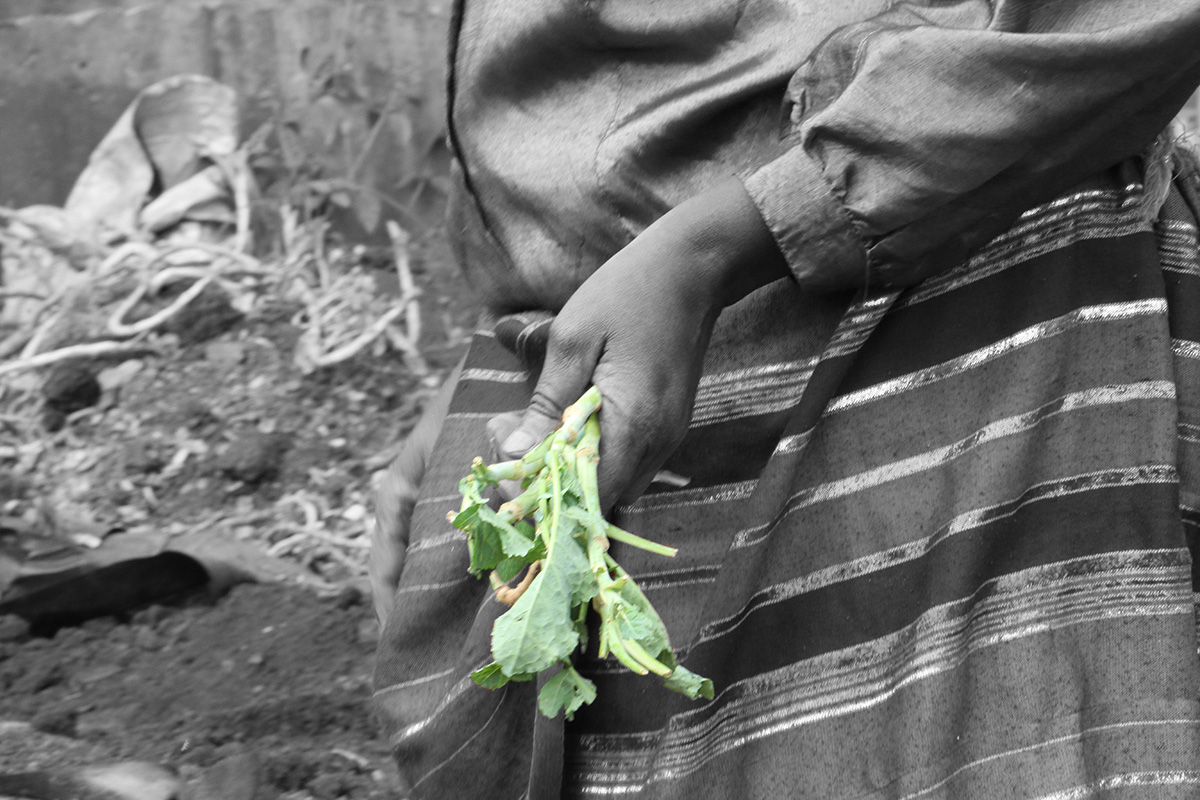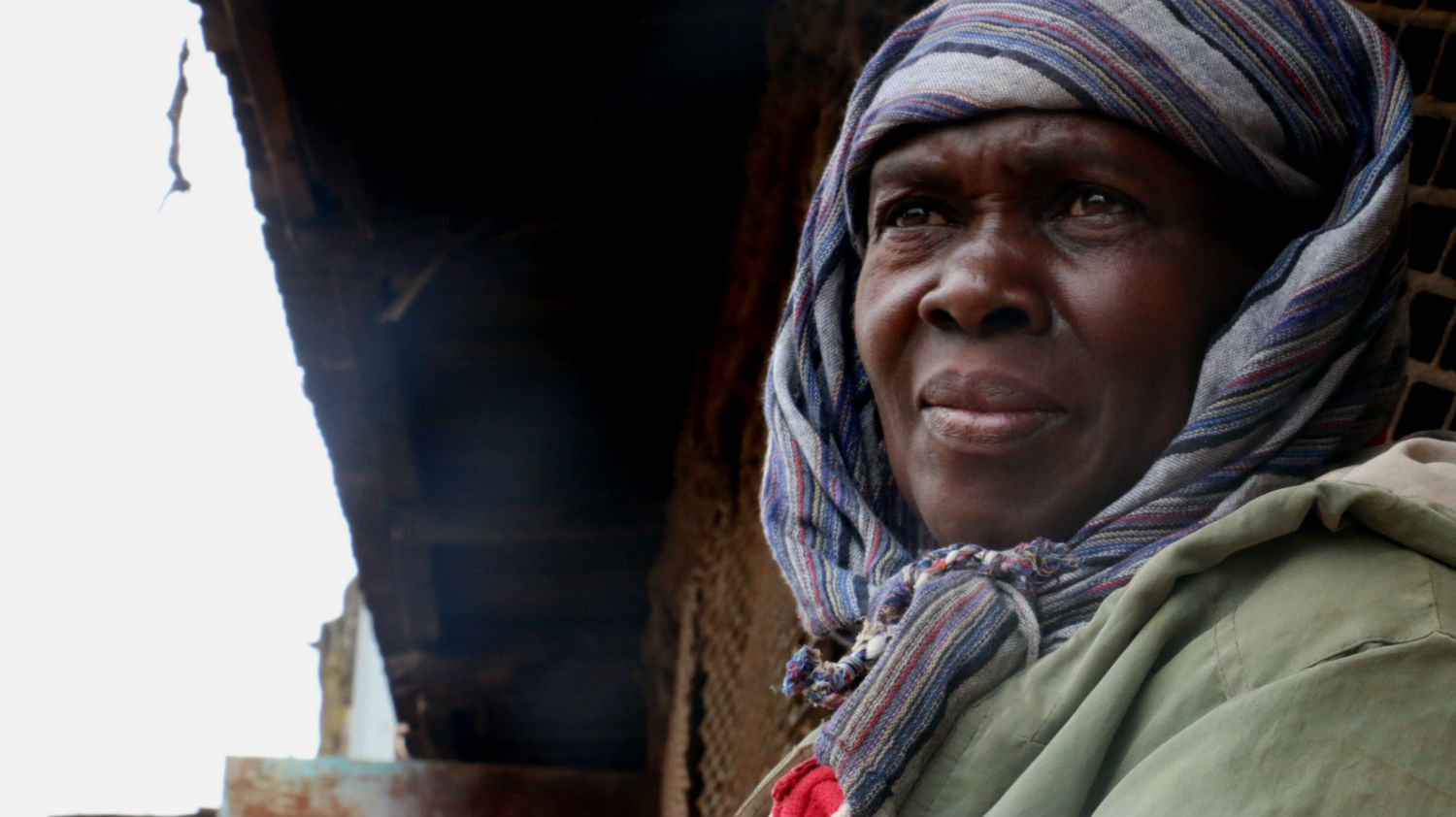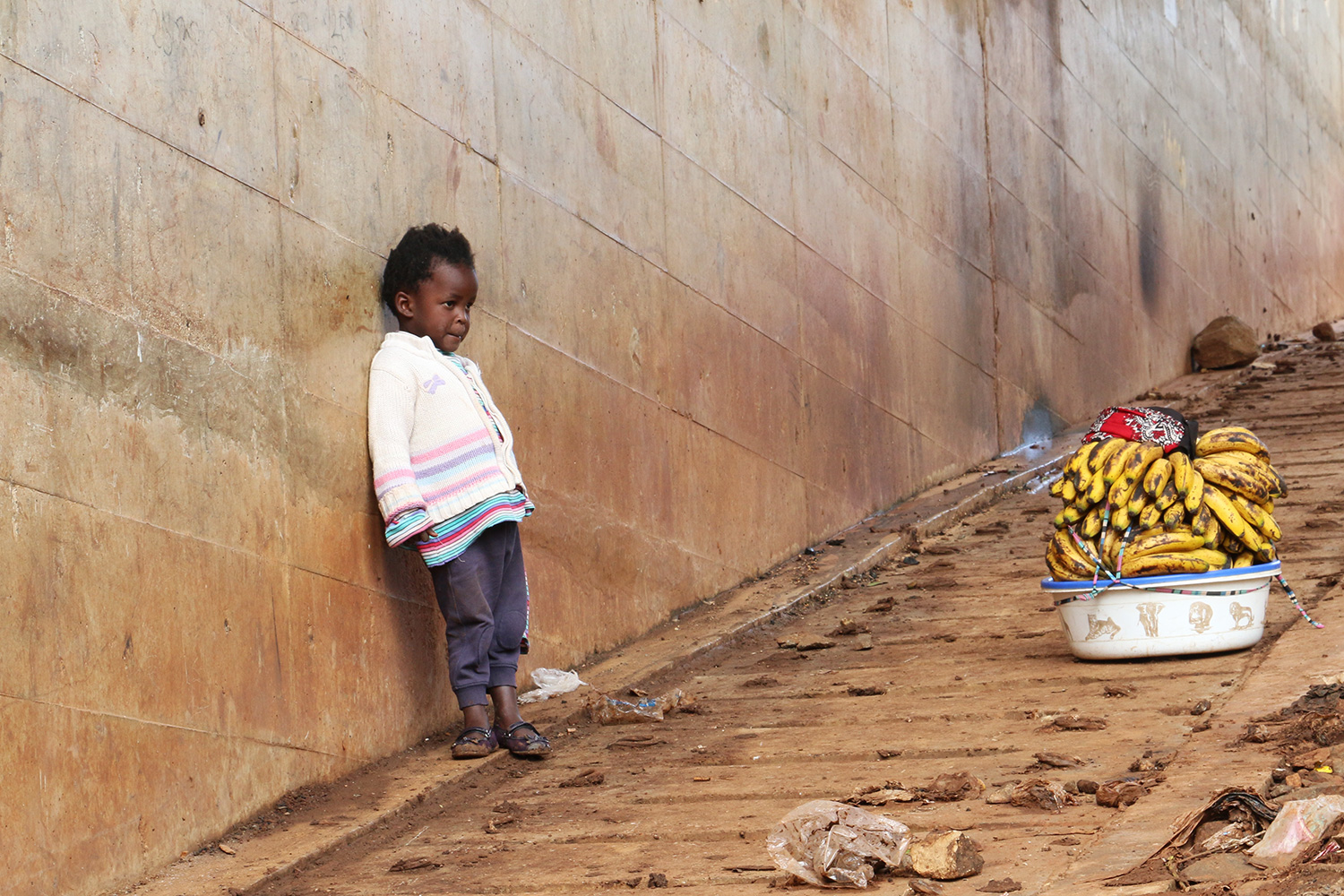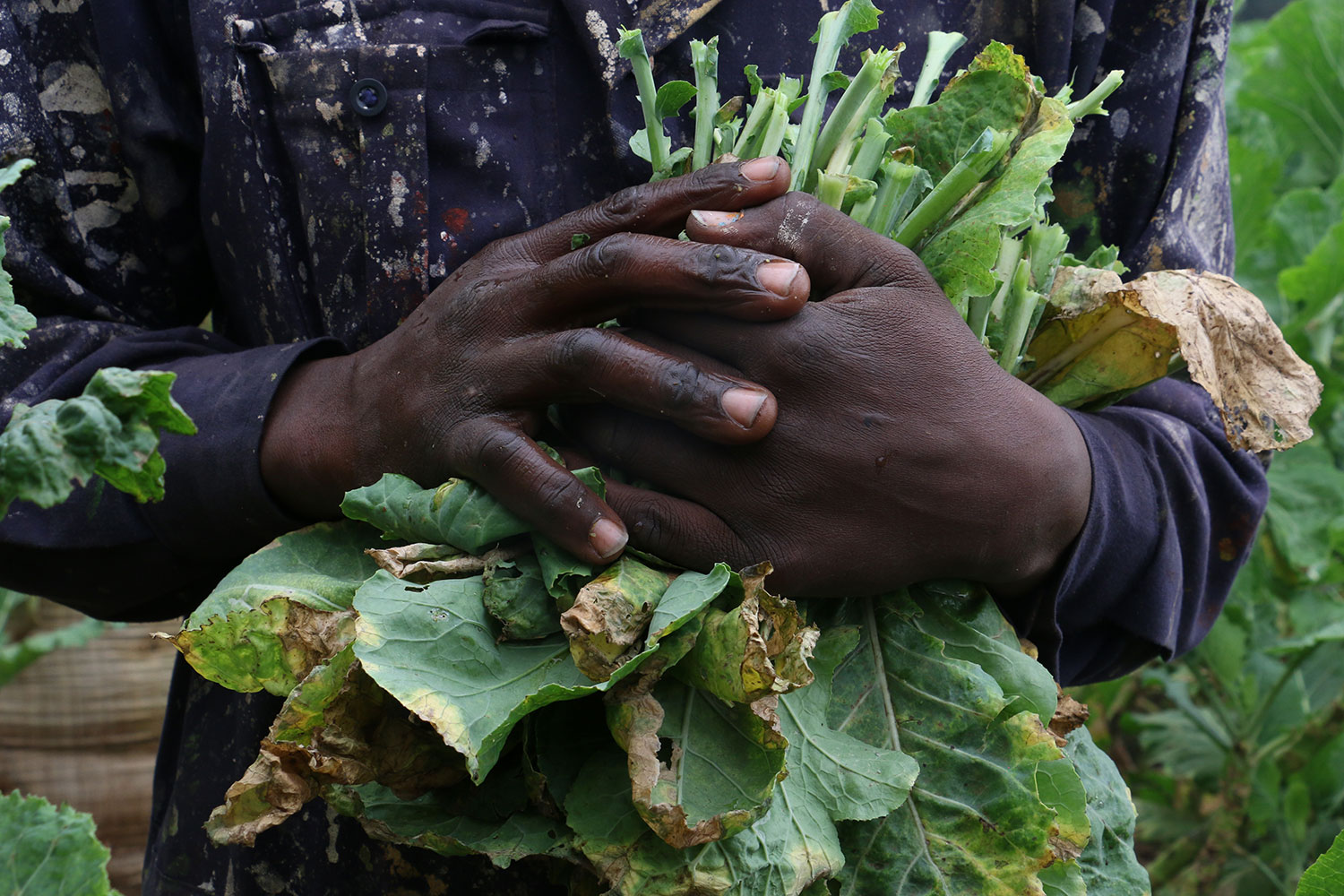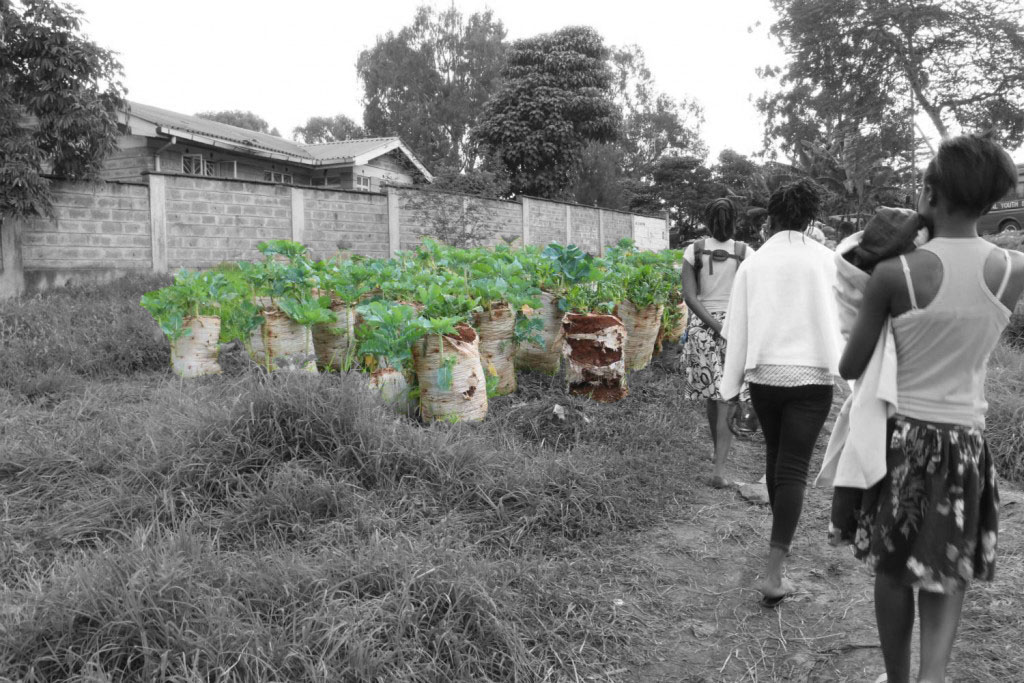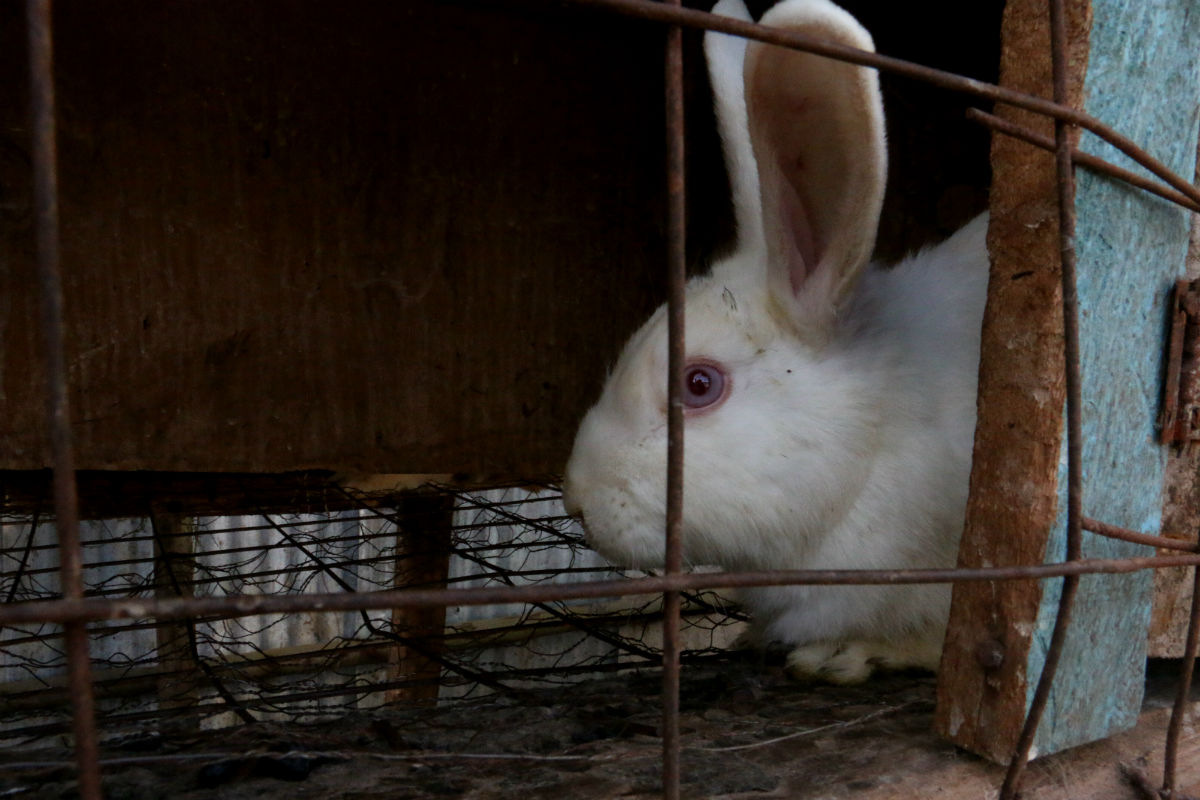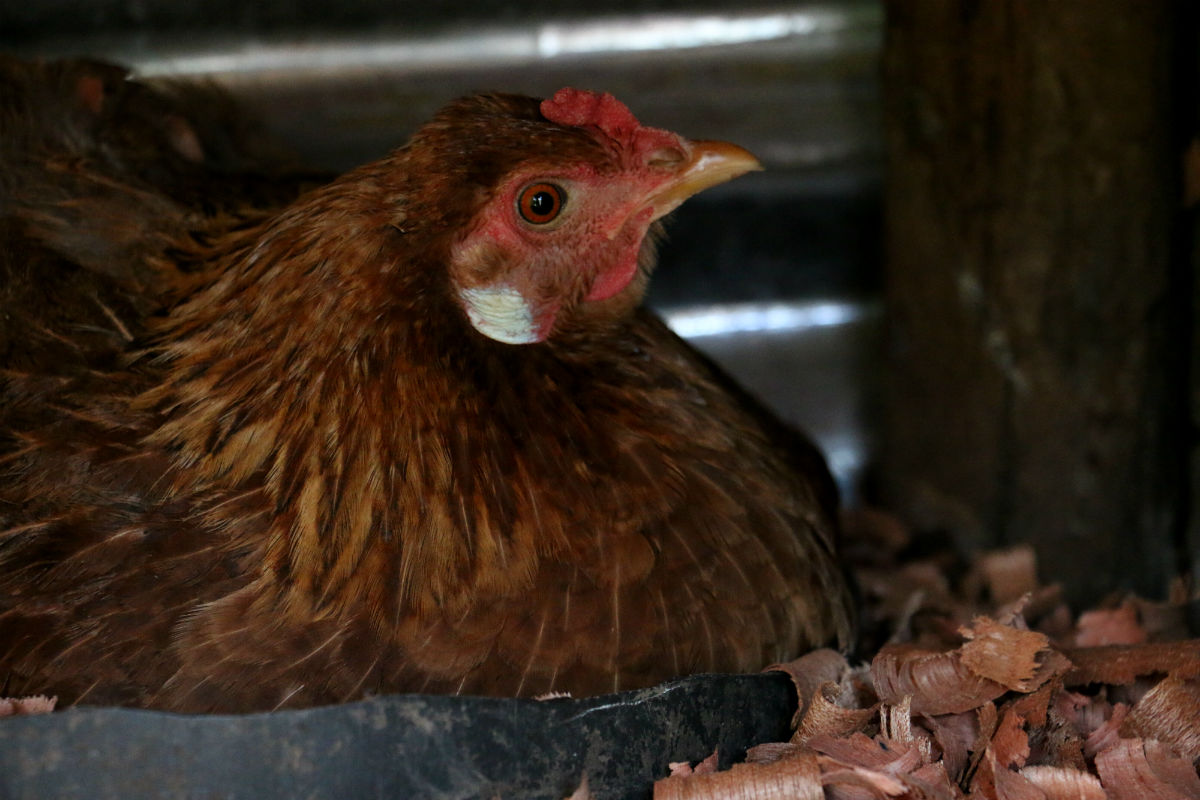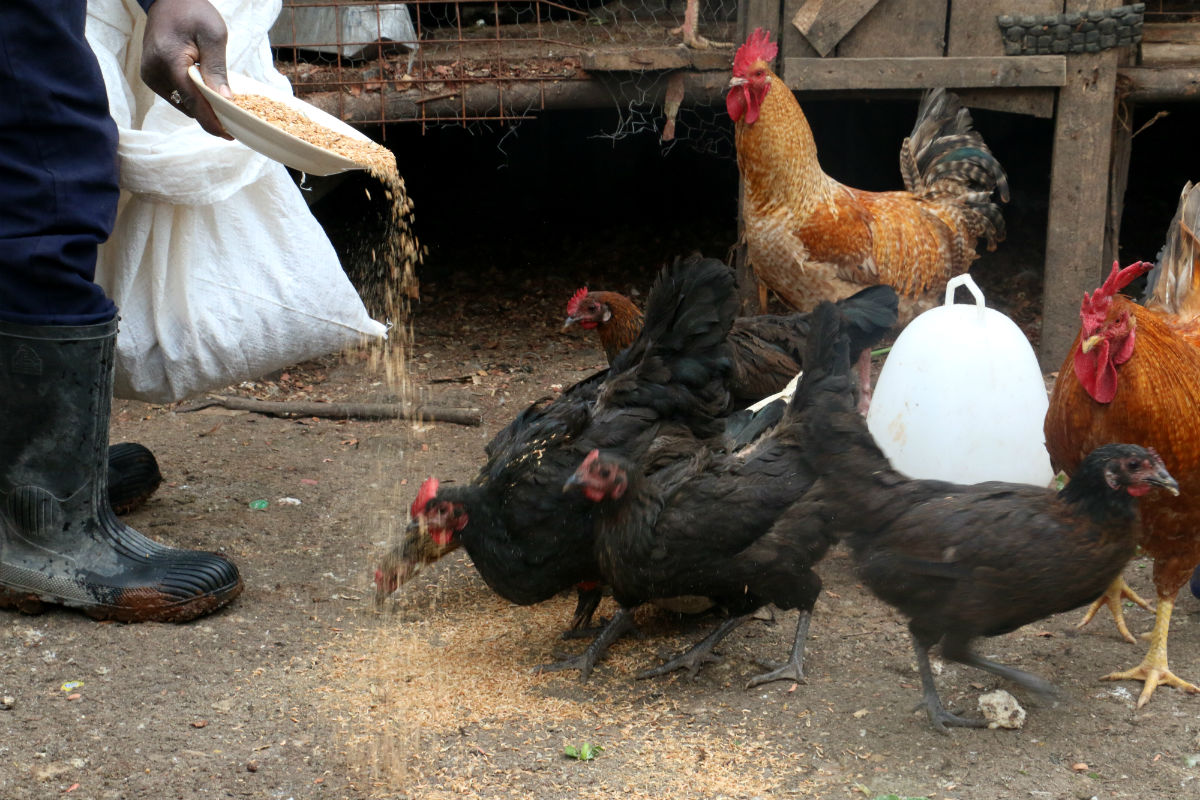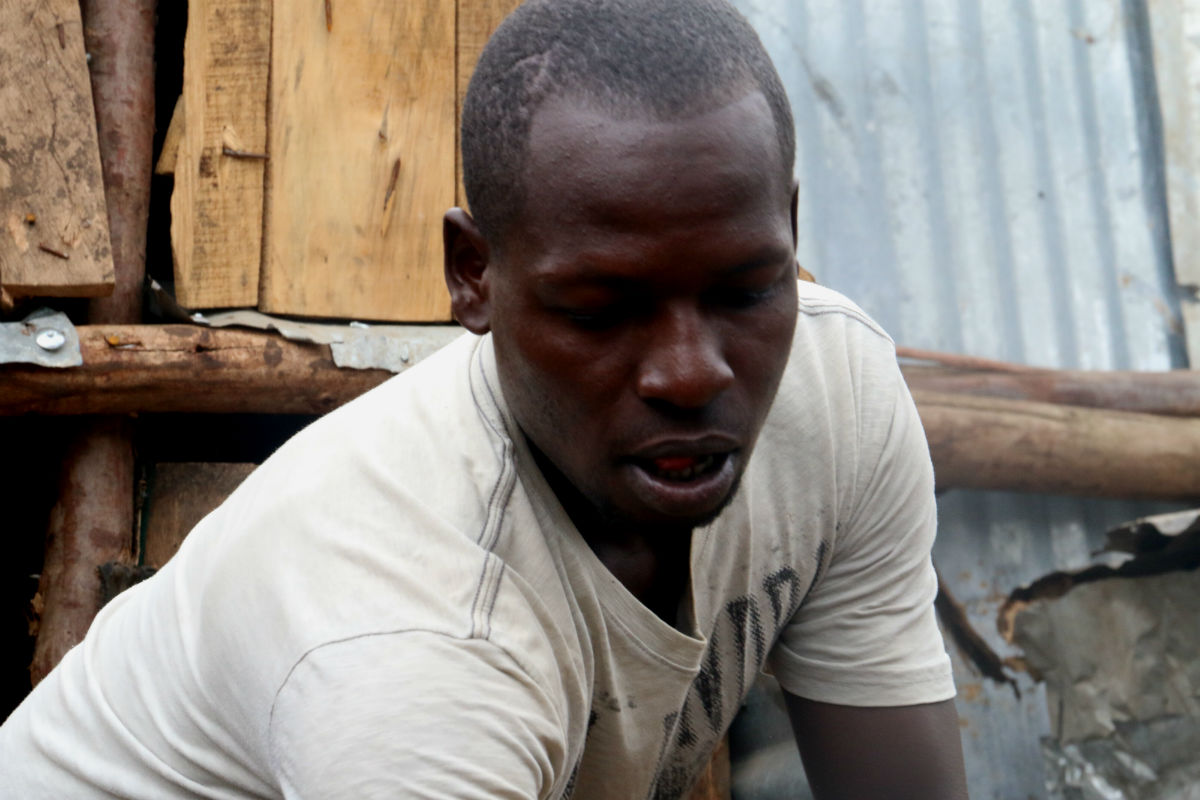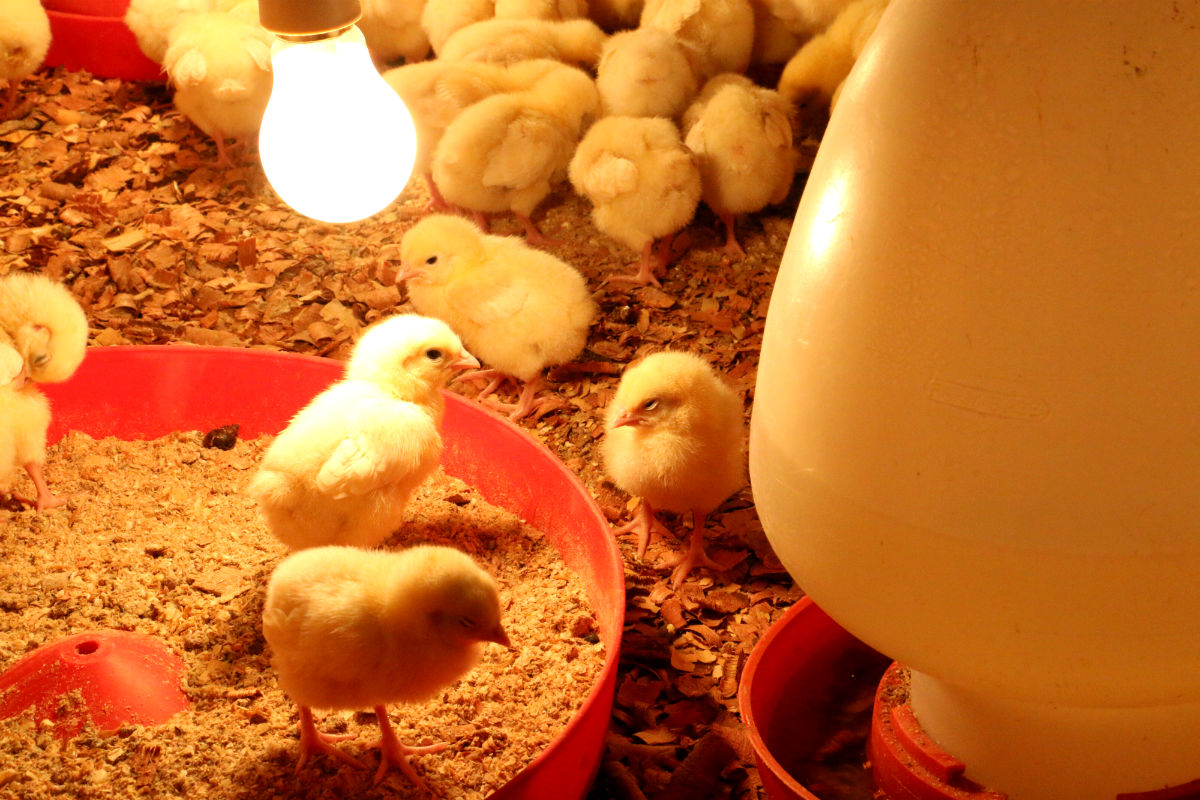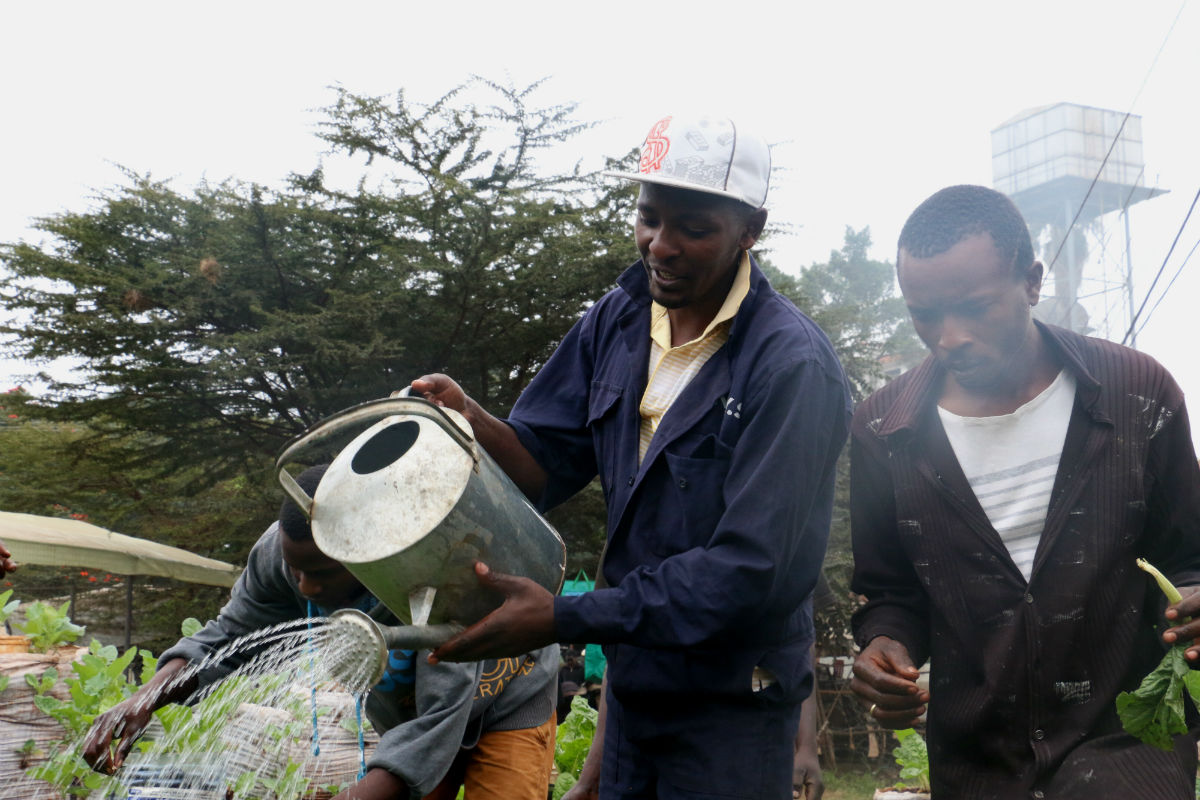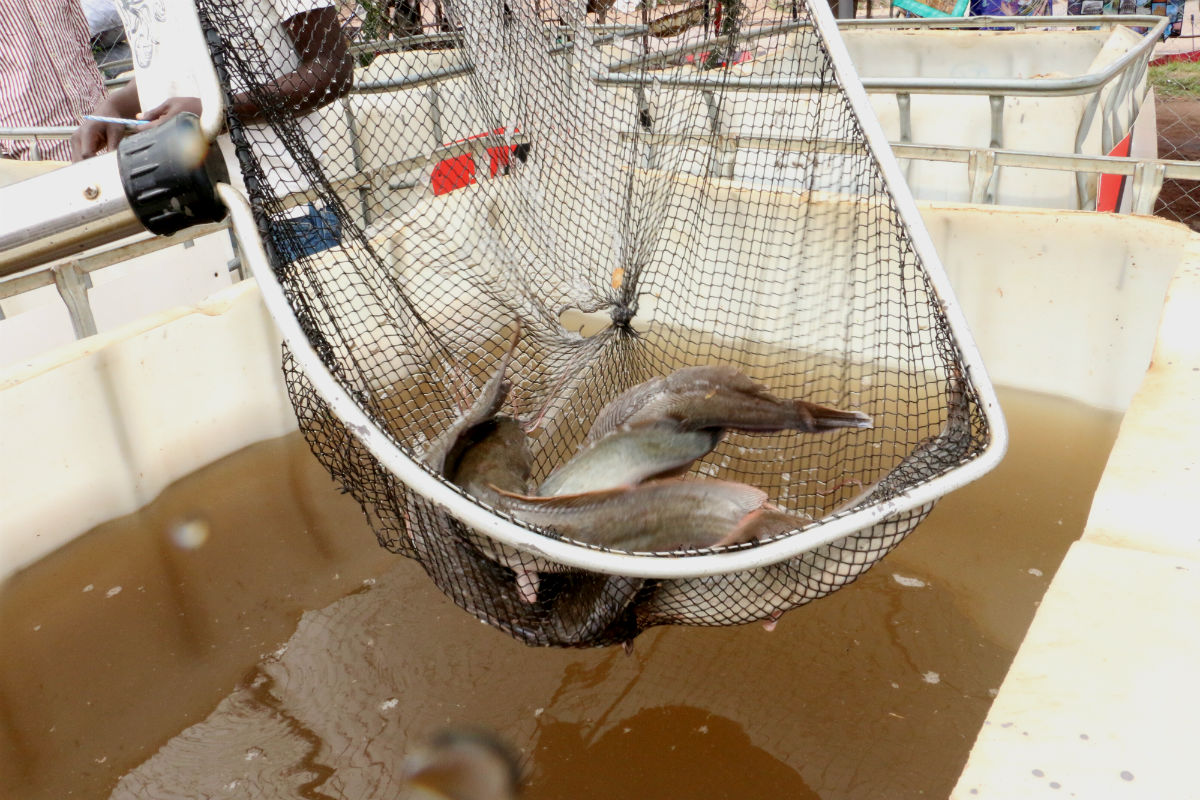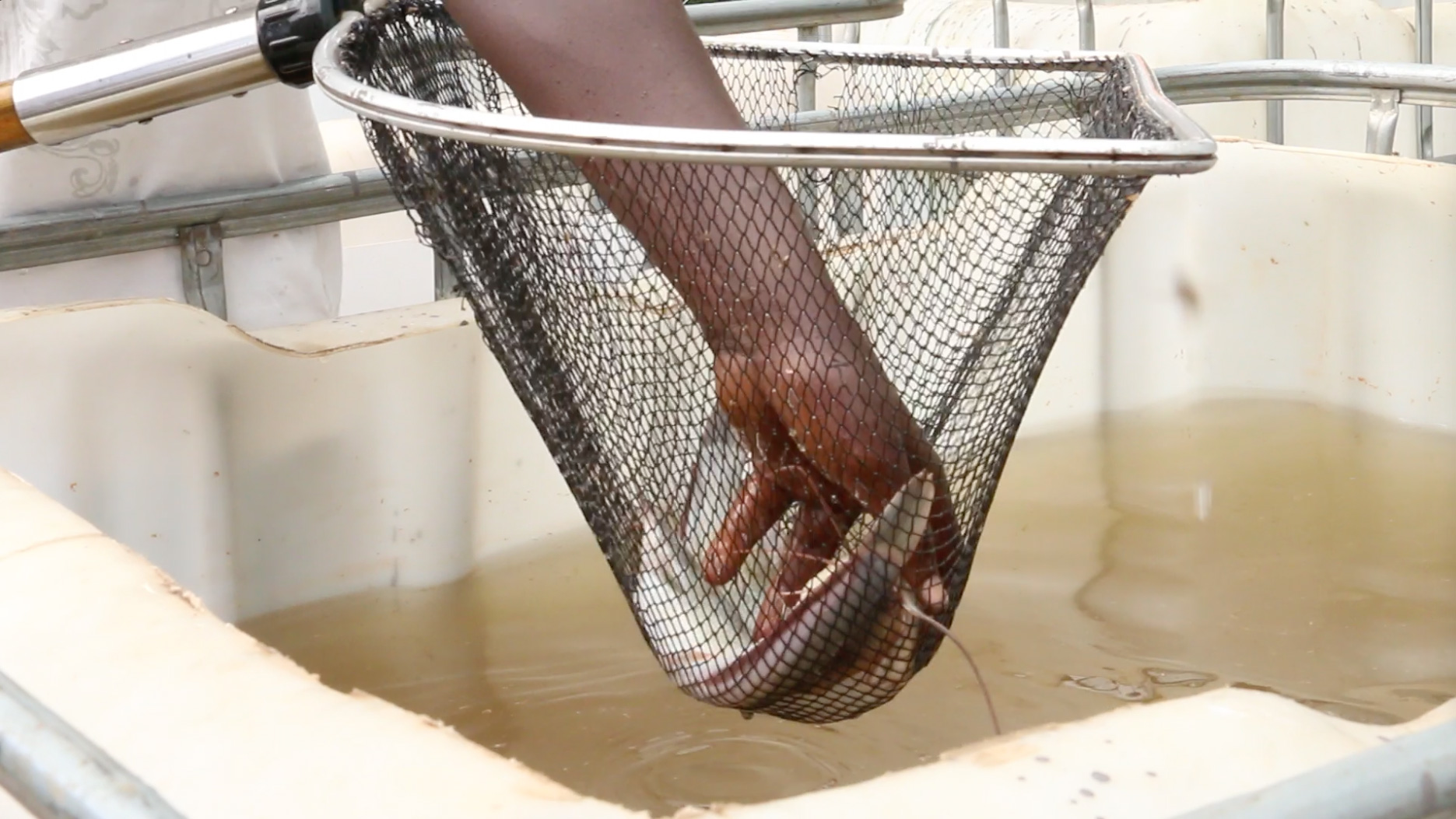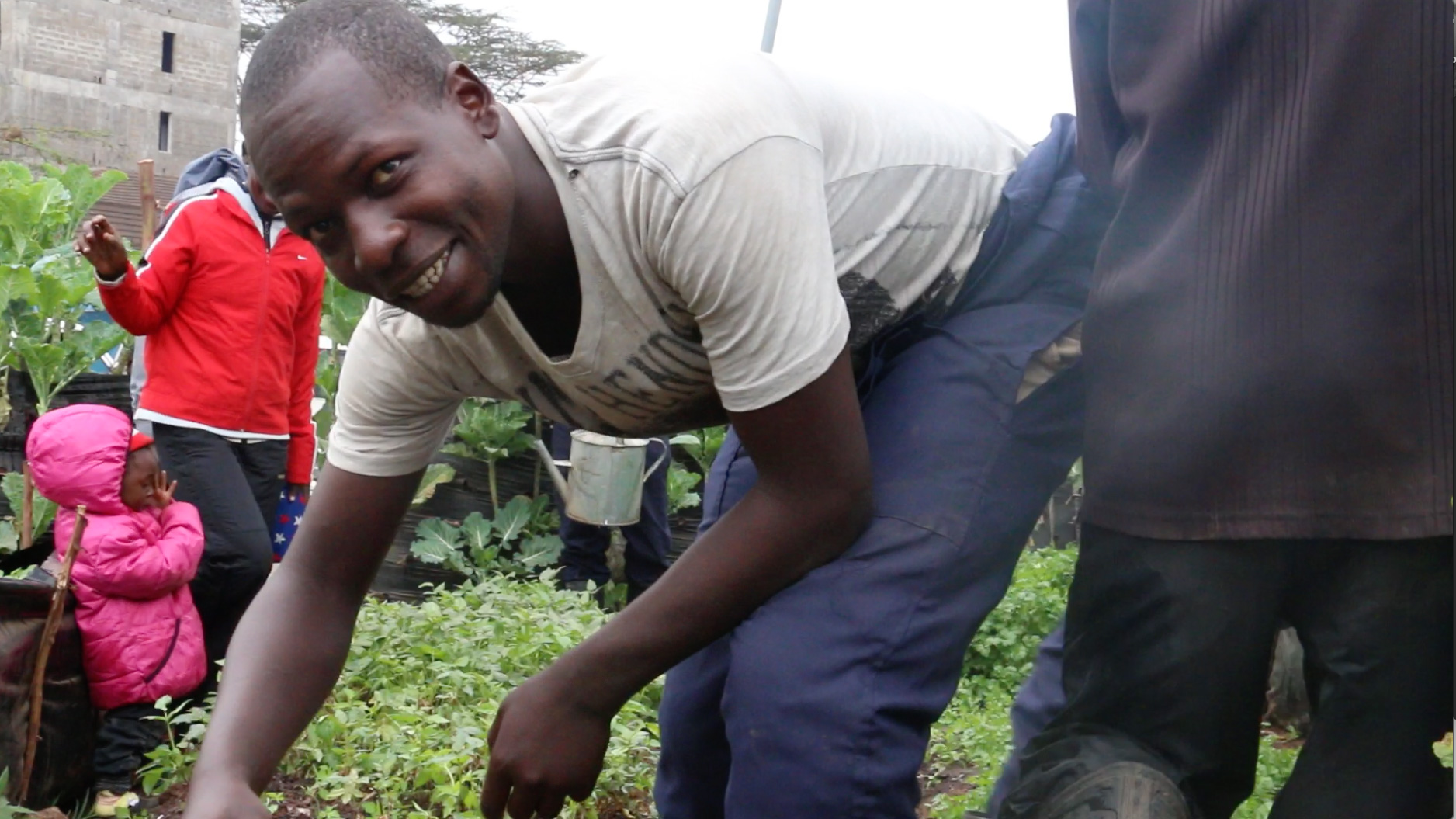
The Junction: From guns to gardens
Youth living in Africa’s largest informal settlement have traded in their guns for a different kind of weapon. Urban farms are transforming ex-armed robbers into green revolutionaries.
Edmonton Mugita, 30, was born and raised in Kibera, located just southwest of Nairobi’s city centre. Edmonton started his urban farm in Kibera three years ago after spending a year and a half in jail for robbery.
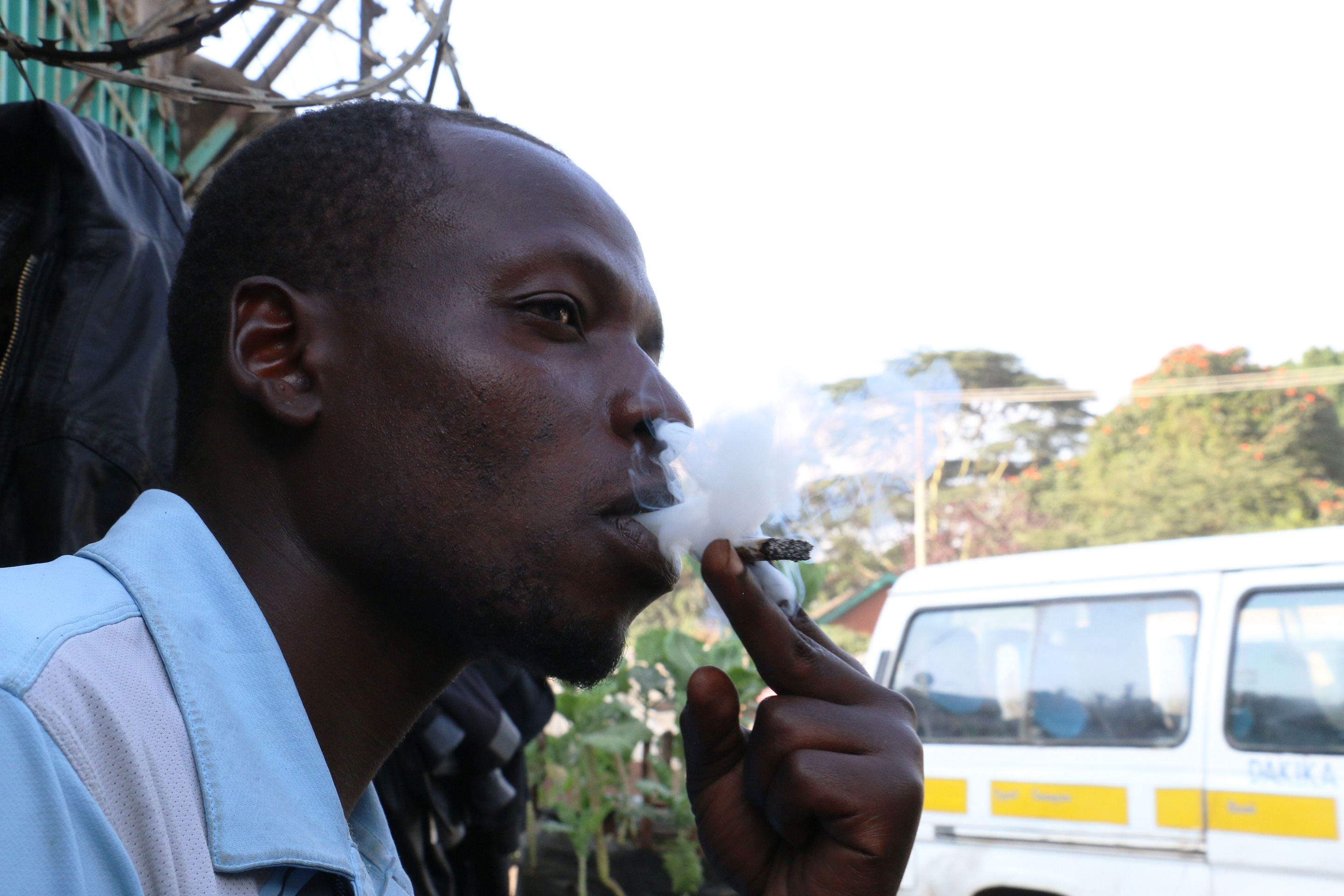
Edmonton smokes on a break from farming at the Junction. [Photo © Evelyn Harford]
As a reformed, self-professed gangbanger, Edmonton has influenced other former gang members to join his small green revolution.
“We turned our guns into gardens and our fish into bullets,” says Edmonton.
Edmonton now tends to his kale, fish and poultry that grow among the grime and dust blanketing Kibera. Edmonton and his crew of 12 have transformed from gangsters to gardeners. They call their urban farm The Junction Self-Help Group.
The Junction, like other farms in Kibera is “gender balanced”, meaning they have both men and women represented in their organization. The farm has also been invested in by Nairobi Province’s Ministry of Agriculture to stimulate employment among both male and female youth.
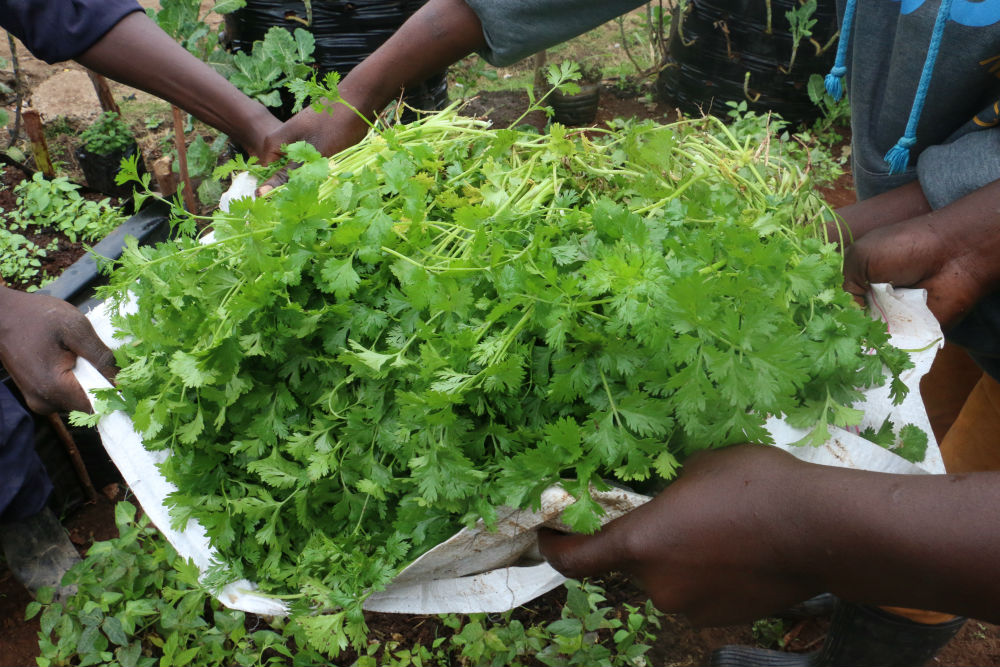
Junction members harvesting herbs. [Photo © Evelyn Harford]
Unemployment in Kibera is extremely high and disproportionately affects youths. Many families don’t have enough money to support their children—including Edmonton’s parents.
“It’s hard here. You grow up with six siblings. Because you’re big, your father sends you out of the house and you live between homes, clubs and the streets,” he says. Edmonton did brief stints as a hard labourer but life on the streets soon turned into a life of crime.
The men from The Junction chatted for hours about their life and past. Slowly as their hard exteriors began to melt away, they told me about their criminal past. All of the five men surrounding me, including Edmonton, say they had been in a gang together.
“It’s because of hardship. There was no food, no money, no clothes. So, I had to look for money,” says Edmonton.
“We are victims of circumstance,” says Jamil Ochieng another member of the group. Edmonton and his friend Jamil were leaders in the gang before teaming up to garden. Their crew was involved in armed robberies of Kibera’s neighboring gated communities.
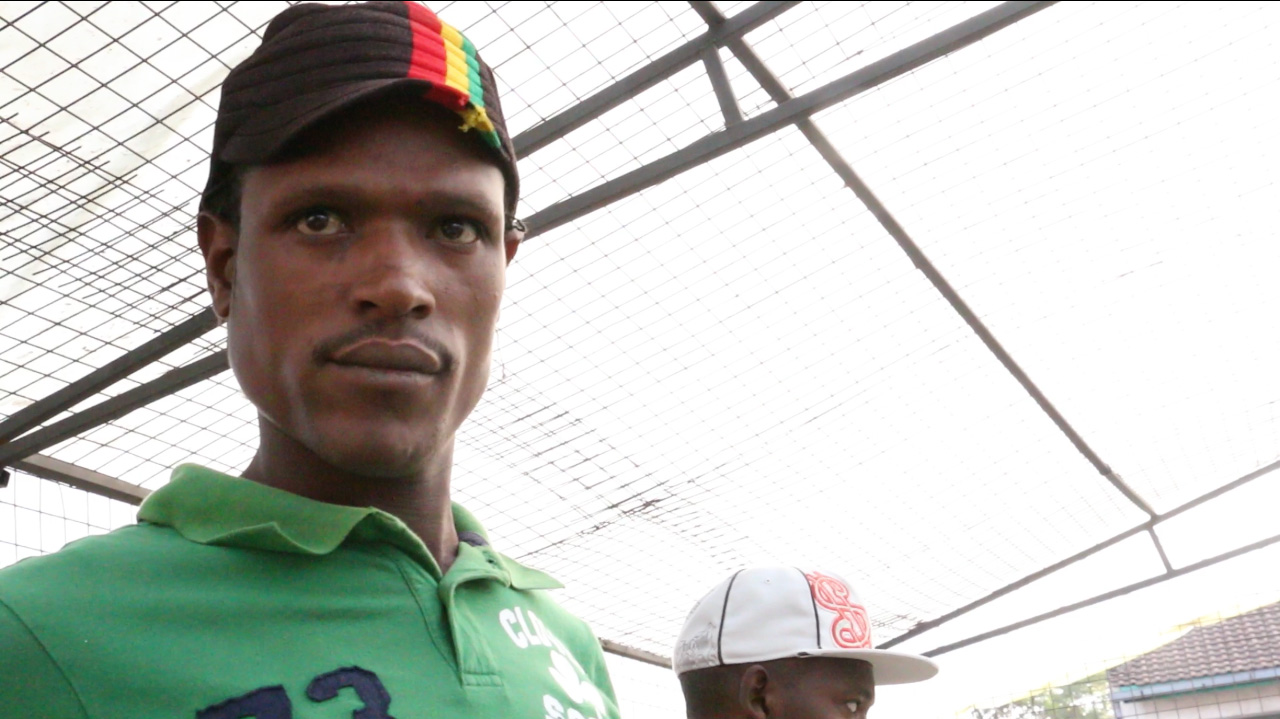
Jamil working at the Junction fish tanks. [Photo © Evelyn Harford]
“We didn’t have a name, but it was just a gang. We don’t have an exact number but we had like 100 guys under us,” says Edmonton. He explained that his crew would storm a home and take whatever they could; electronics and jewelry were the ideal grabs.
“It was every man for himself and God for us all,” says Edmonton.
Violence and theft is normalized for young boys within Kibera. It is often the only option to afford a meal at the end of the day. Now, having discovered the benefits of, and a knack for urban farming, Edmonton feels remorse for the past.
“Stealing from old people was bad,” he says. “And sometimes, beating somebody around when you’re drunk, that was bad.” Now, a father to a six-year-old son, Edmonton’s priorities are different. He wants to set a good example for his child and his community.
“We are reformed now,” he says.
Although reformed, Edmonton is still respected but in many ways is still feared by the community. This gives him influence and power to change more young men whose shoes he was in only a decade ago.
The glimmer of a lost young man still appears in Edmonton’s eyes, even years after reforming his life.
“When most of our friends were killed or taken to jail, we says we need to be an example,” he says. Edmonton spent a year and a half in jail himself when he was 18 years old.
“I stole from someone who knew me and he traced me to the police,” he explained. “Once I got out I knew I needed to stay busy.”
So, he started a farm.
“We sat down and found a piece of land from the county representative. So we cleared the place, cleaned the bushes and devised that we should do something better. We came from a background of agricultural people and decided that’s what we should do,” says Edmonton.
They first started with sack gardens and quickly expanded into rearing chickens, rabbits and most recently fish. The Junction provides fresh and affordable vegetables and meat to the surrounding community.
Edmonton explains proudly that the farm now clears about $1,000 per month from sales of poultry, fish and fresh vegetables. Each group member is able to take home around $100 dollars each month.
Urban farming is a trend capturing the imaginations of some youth.
Lucy Mbrgua, an agricultural ward officer with Kenay’s Ministry of Agriculture often visits The Junction providing guidance and support for to Edmonton and his crew.
“It is my wish they can embrace agriculture. I want them to get income. I want them to succeed,” she says.
Their compound has over two-dozen sacs, two box planters over a dozen chickens and rabbits and nearly 600 fish.
The Junction is a community-based organization run by ex-gang members. The raise chickens, rabbits, ducks, mud fish and grow kale, lettuce and herbs.
Increasing interest is stirring around their project by the community and government members of parliament and county assembly. The newly built fish tanks containing mudfish were funded by Nairobi City County.
For this group, the donations of the fish and the tanks have made a big improvement. Fish farms are the most profitable and rarest type of urban agriculture venture in Kibera.

Edmonton hangs out at the fish tanks after the interview. [Photo © Evelyn Harford]
“The NGO’s don’t support us so we have to do something. We need to make the money. That is why we put on our gum boots, go to the farm and get dirty,” says Edmonton.
Youth like Edmonton will continue to sow the seeds of change by providing a reliable food supply for Nairobi’s poorest residents and an example for future generations.
This project was made possible by an investment from the Nairobi county government before the urban agriculture reforms were passed last summer. The government’s shift to actively support projects like The Junction was seen by some as a sign there could be more funding for the women I encountered as well.
The Junction is considered to be gender balanced but when I visited it was far from the picture of gender equality. There was only one woman that I saw in my two weeks visiting this farm; her name was Faith Mwekali. She was not included in the afternoon gatherings with the men and spent her days working on the side of the road to repair shoes and tending to customers when they came.
Faith, a 24-year-old mother of a young daughter. She had chickens of her own at home. I planned to interview her, but before I visited, they died. She also reported that while the men were making money, she didn’t receive what they claimed each member got.
Her duties at the farm fit into the typical gender roles. As a side project from farming, The Junction built community toilets on their land. Sanitation is a huge problem in Kibera. Faith was responsible for cleaning up the toilets and indeed most of the men’s activities.
Listen to how Faith’s gender impacts her income and roles at the Junction.
Ironically, but not surprisingly, the male-run, “gender-balanced” group had the most government attention I had seen on any urban agriculture plot. They had visits by Kenya’s Minister of the Environment, Water and Natural Resources and multiple visits from the city’s agricultural ward officers.
When I asked the men why Faith was always cleaning the toilets or off on her own working, they simply say that they all work together.
Diana Lee-Smith, an expert on gender and urban agriculture, says that it’s common for the division of labour to be set up the way I observed at The Junction.
“It’s difficult to change gender perceptions,” she says.
Traditional gender roles are still prevalent despite government action to enshrine gender equality within their constitution and, while it’s easy to change laws, says Lee-Smith, it’s more difficult to change behaviour.
Click on the section “Why women?” to find out how gender intersects with agriculture and poverty.
